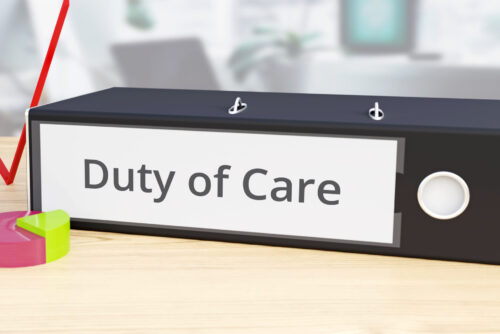
In Maryland, those who are injured due to another party’s negligence or wrongful actions can pursue personal injury cases to seek compensation for their damages. Successful claims require demonstrating specific elements to establish liability. Understanding these elements is essential for navigating personal injury law. Please continue reading as we explore the concept of “duty of care” and highlight how a dedicated Prince George’s County Personal Injury Attorney can assist in the pursuit of justice.
What is “Duty of Care” in a Personal Injury Case?
Establishing a “duty of care” is fundamental to any personal injury claim. This legal concept requires individuals and organizations to exercise a certain level of caution and prudence to prevent foreseeable harm to others. The extent of this duty can vary significantly depending on the unique circumstances and the nature of the relationship between the parties involved. For example, motorists have a responsibility to operate their vehicles safely and follow traffic regulations. Similarly, property owners have a duty to maintain their premises in a reasonably safe condition for lawful visitors. Determining whether a duty of care existed in a given scenario is typically the initial step in assessing the viability of a personal injury case.
What Happens When There is a Breach of Duty?
Once a duty of care has been established, the next element in a personal injury case is demonstrating a breach of that duty. A breach happens when the defendant’s conduct falls short of the expected standard of care under the circumstances. This breach can take various forms, from negligent acts to intentional wrongdoing. Examples of a breach of duty in an auto accident might include speeding, disobeying traffic signals, or driving under the influence of alcohol or drugs. In a slip and fall case, a breach may involve a property owner failing to remedy a known hazard, neglecting to provide adequate warning of a dangerous condition, or failing to implement reasonable safety measures to prevent injuries. To prove a breach of duty, evidence must be presented showing that the defendant’s actions or inactions did not meet the accepted standard of care and created an unreasonable risk of harm.
However, it’s important to note that in a personal injury claim, the plaintiff must prove more than just a duty owed and breach of that duty. They must also demonstrate a direct link between the defendant’s breach and their resulting injuries. This causation element requires showing that the injuries would not have occurred if it weren’t for the defendant’s negligent actions and that the harm was a reasonably foreseeable consequence. Establishing this connection can be challenging.
Finally, you will need to prove that the plaintiff suffered actual damages. Damages reflect the tangible and intangible losses incurred as a result of the defendant’s negligence. To maximize your chances of a favorable outcome, it’s crucial to thoroughly establish each element of the personal injury claim.
At McCarthy, Winkelman & Mester, L.L.P., we are prepared to help you fight for the compensation you deserve and need to get your life back on track. Connect with our firm today to schedule a consultation to discuss your case and explore your legal options.


